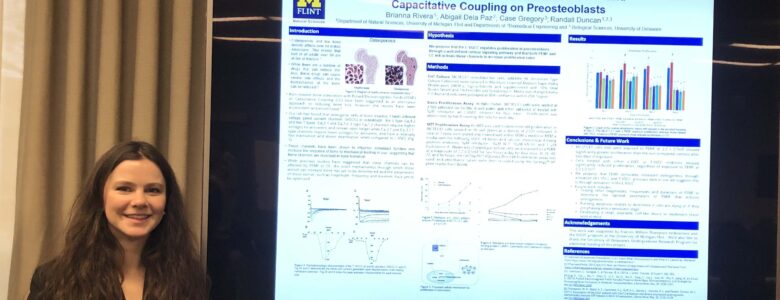Founded with generous support from the Ben Breyer Foundation and supported by Office of Research and Economic Development funds, the CoARC has made a strong case for interdisciplinary research to address challenges and opportunities associated with an aging population. The cluster is co-directed by Sheryl Groden and Allon Goldberg, who have facilitated a new conversation at the undergraduate, graduate and faculty levels. The Center on Aging Research Cluster has led an interdisciplinary dialogue on aging-related research.
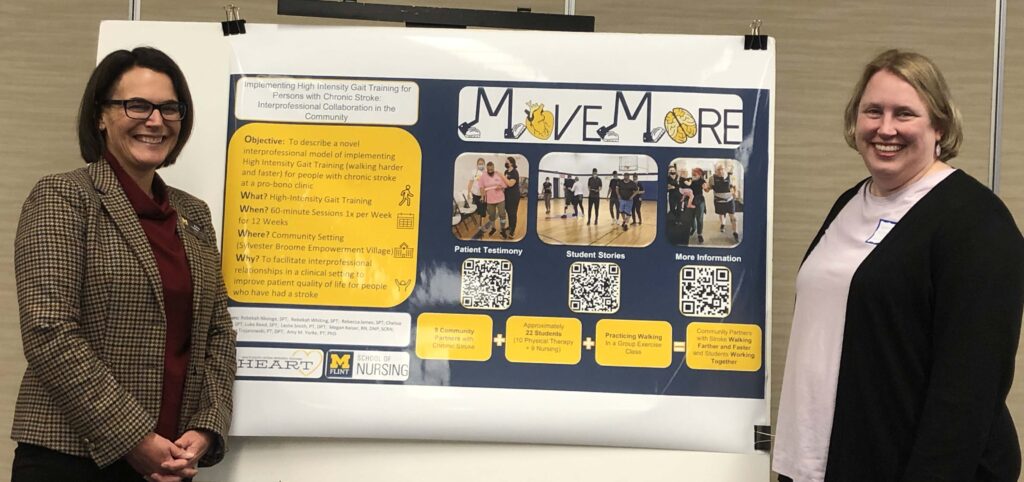
Fall Symposium
This past Fall, the research cluster began with a symposium that included poster presentations from research projects on campus and a speech delivered by special guest Dr. Clare Luz from the MSU College of Osteopathic Medicine, who gave a fantastic presentation, “How an Age-friendly University benefits everyone.” Luz was co-founder of both AgeAlive and IMPART Alliance. AgeAlive has similar goals to our own CoARC – to work towards the parameters set for Age-Friendly Universities on their campuses, foster intergenerational experiences, and strengthen community partnerships toward those ends.
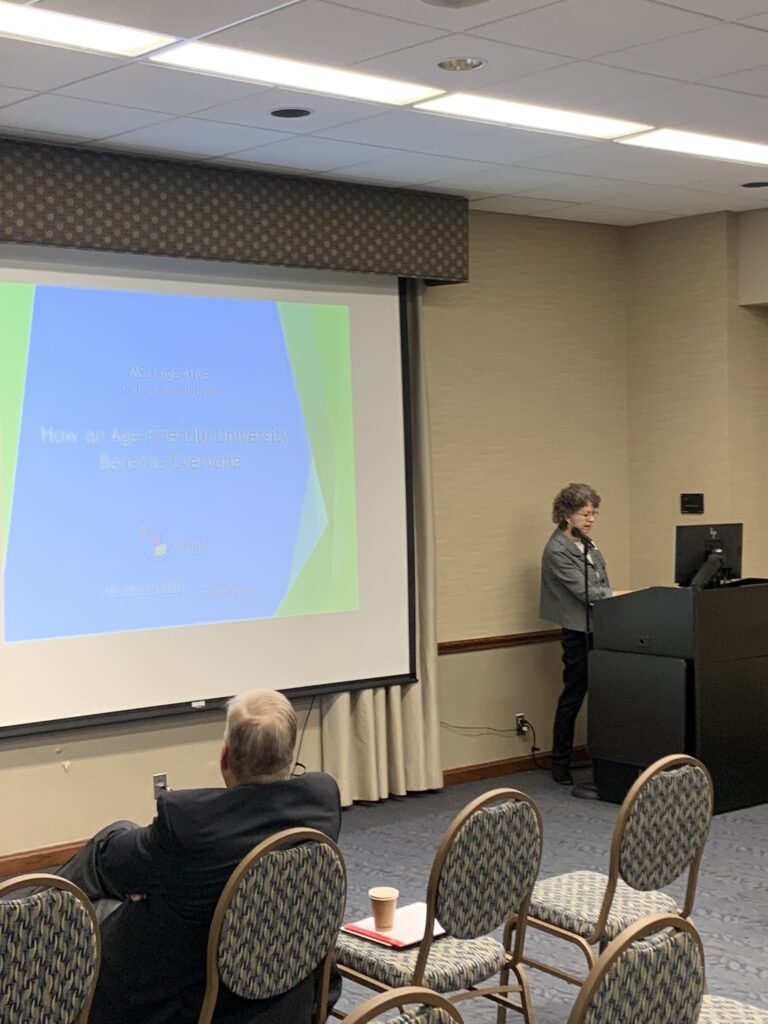
IMPART Alliance aims to tackle the growing problem of a direct care workforce shortage through research, strategic partnerships, better system-wide tracking of certified direct-care workers, and robust accelerated training programs to address this increased need. In her presentation, Luz said, “Nationwide, there will be more people over the age of 65 than under the age of 18 by the year 2035. In Michigan, this pattern is even more intense; it will happen in 2025.”
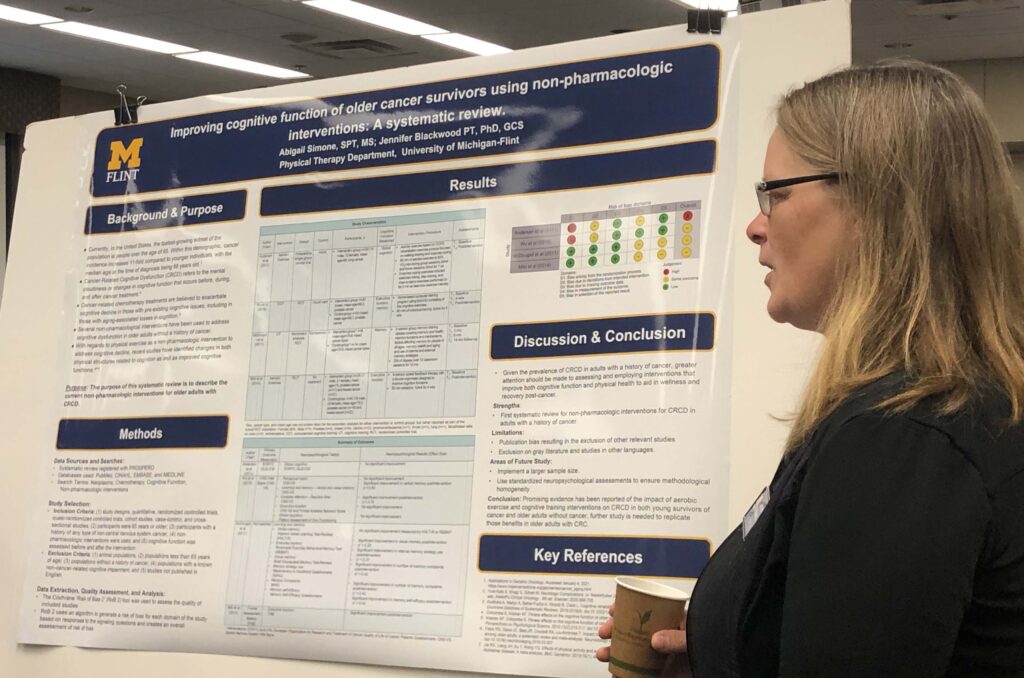
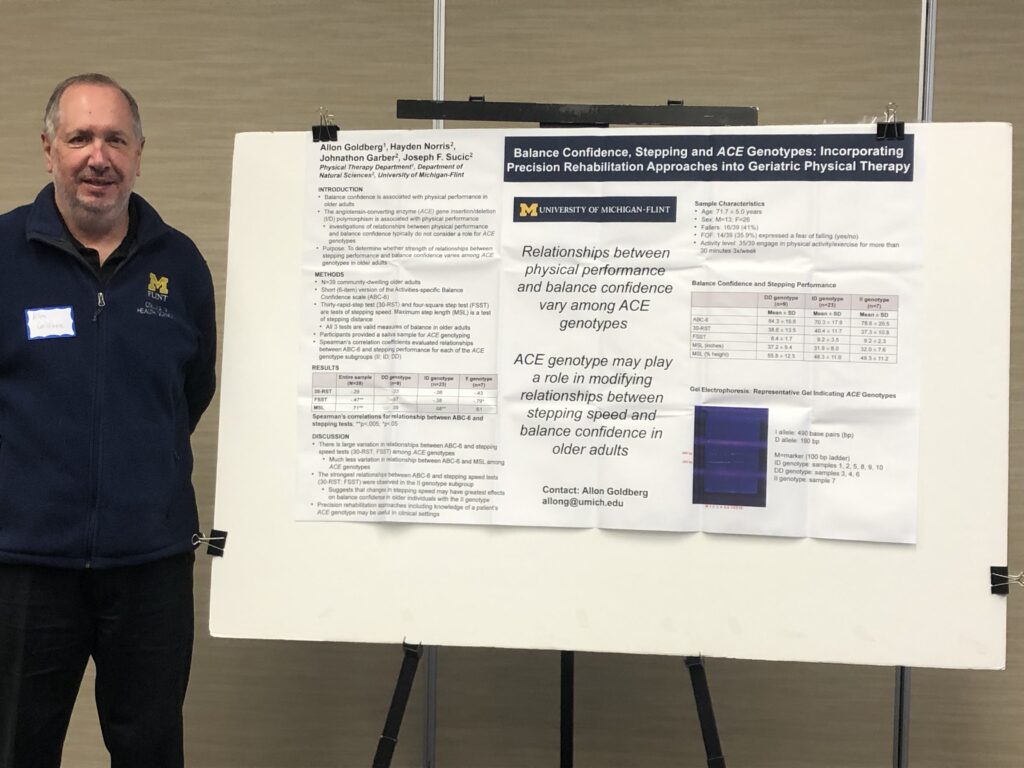
This trend underscores the importance of programs like CoARC and her MSU programs. “Higher education has the responsibility to respond to this trend,” she said and explained the parameters of the World Health Organization-endorsed Age Friendly University designation.
Groden adds, “we are working toward that same Age-Friendly University designation here at UM-Flint. We’ve submitted an application proposal to the administration and are partnering with older adults and caregivers in Genesse County to ensure our research efforts are community-engaged.” Many of the CoARC projects were part of the poster presentation after the speech. UROP and SURE students presented alongside their PI professors, a wonderful aspect of research at UM-Flint – that the research gives opportunities for students to get some practice co-authoring papers and presentations.
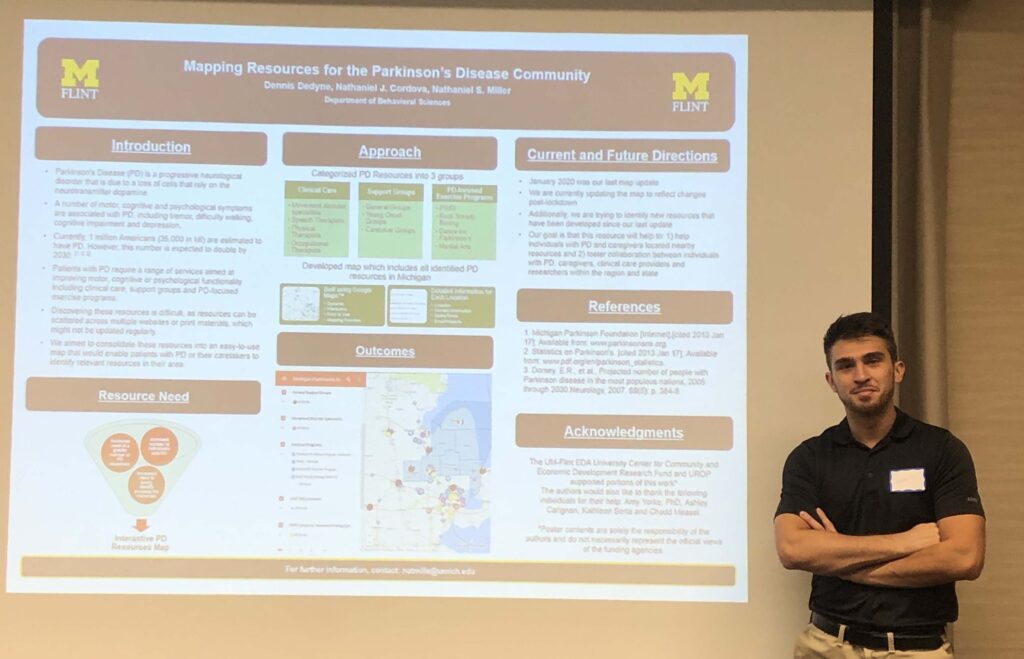
Throughout the Year
“This year especially has been a grounding year to think about how to connect faculty with one another to see how interdisciplinary work can connect with aging research and what funding opportunities there are,” says Groden. This year, the cluster has met monthly for research lounges where faculty shared information on the research they’ve been doing. Those who have participated emphasize that these conversations have led many of them to think in a bigger way about how we can work together to deliver impactful work.
In addition to the research lounge discussions, the CoARC has held three qualitative research workshops led by Dr. Tova Walsh, assistant professor of Social Work at the University of Wisconsin – Madison. The last of these was held on Thursday, May 4th and they were available to professors and doctoral student researchers on campus.
From March 26th – April 1st, 2023, the CoARC held a Careers in Aging Week on campus. This event aimed to share with students the different opportunities at UM-Flint to engage in careers with older adults and class offerings in long-term care administration, health and aging, or social work and aging. The growth of our aging population will lead to a large workforce demand, and course work in the aging field at UM-Flint will help students position themselves to be a part of the solution.
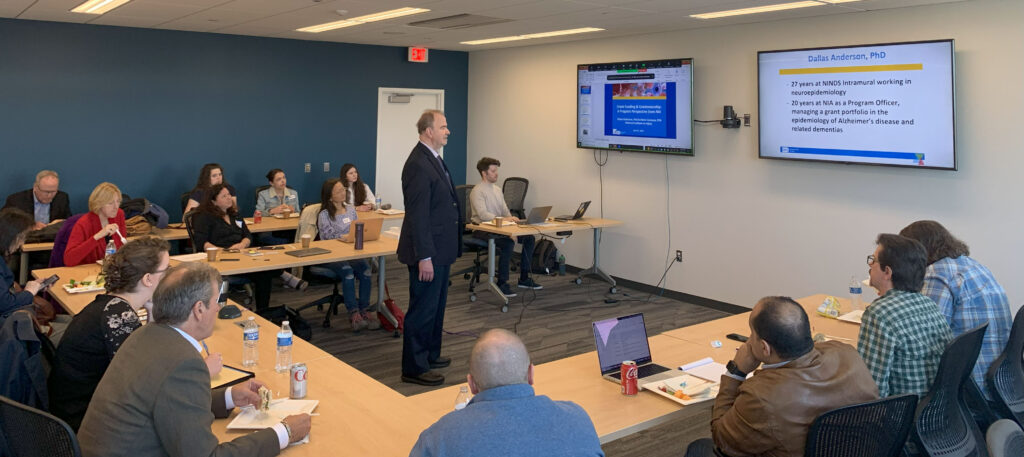
On Thursday, April 27th, the CoARC hosted UM-Flint alumnus Dr. Dallas Anderson, who works for the National Institute of Aging, a division of the National Institute of Health. Anderson met with students and faculty for questions about grantmaking and how to navigate the heavy expectations of NIH grants. He and his colleague Maria Carranza gave a deeply informative keynote address that helped lend insight into the landscape of departments within the NIH and best practices to increase funding chances for grant proposals. Any professors who would like to access the slides and webinar footage of this can reach out to Ken Sylvester or Sheryl Groden.
On May 25th, there will be another workshop on aging research funding opportunities co-hosted by Groden, Ken Sylvester, director of the Office of Research, and Emily Newberry, research specialist with UM-Flint’s Thompson Library. While Sylvester and Groden will share insights gleaned from the recent NIA talk, Newberry will deliver a lot of insight into the many ways the Library is able to support campus researchers as they navigate the complex research grant ecosystem. Just as the research clusters have shifted the focus to a more collaborative approach, library director Jennifer Dean has encouraged faculty to learn more about the library’s research support.
As UM-Flint works toward being an Age-friendly University and changemaker in the space of addressing our communal problems arising from having an aging population right now, the CoARC has been instrumental to bring together the university community. Future work will focus on better integrating community partners into this dialogue.
